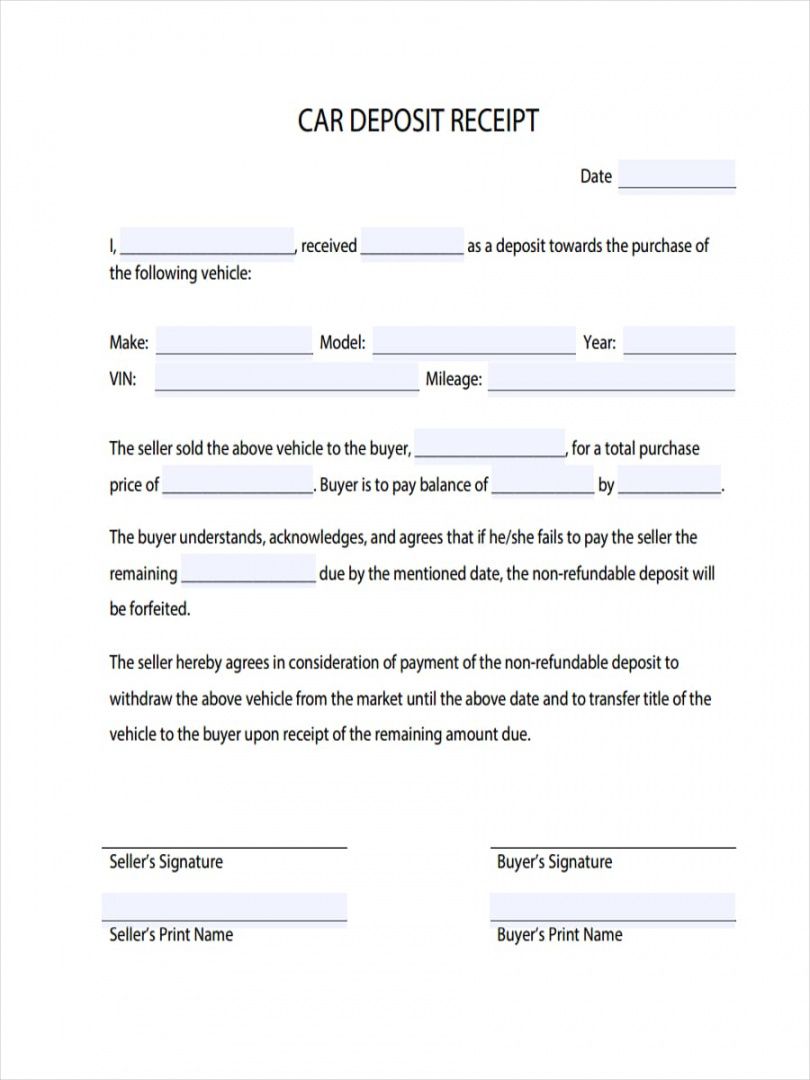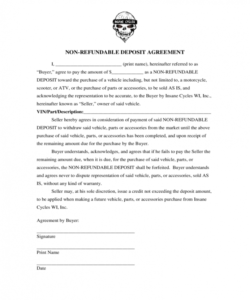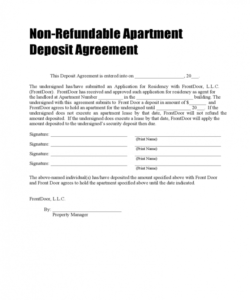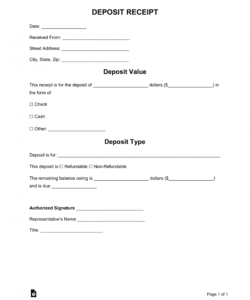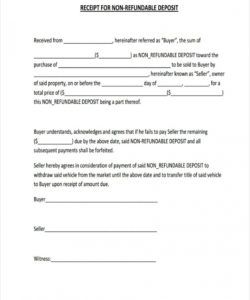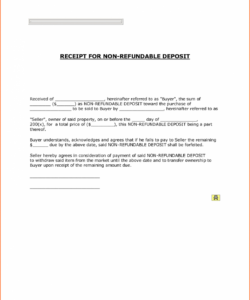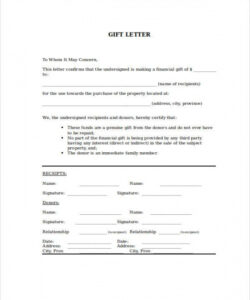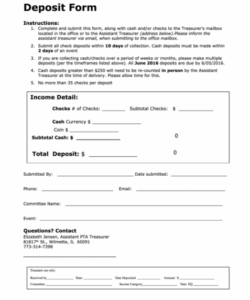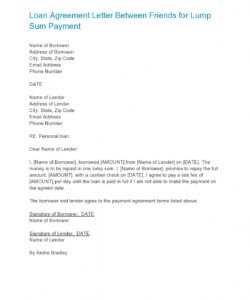Non refundable deposit form template, One of the best challenges of property agents today is discovering all the deposit money they want in addition to the need to protect that money once deposits are made. When it is coming up with the initial earnest money deposit to your first real estate deal to break into investing or trying to get enough money for numerous deposits to create more scale and offers quickly to make the most of their present housing market, this is one of the top frustrations listed by aspiring investors.
Custodial – this type of protection requires the landlord to cover the complete quantity of the deposit to a registered scheme. The money is held in the strategy until the tenant leaves the property. Providing there are no disputes the deposit is paid back to the tenant. Where there is a dispute that the scheme uses an adjudicator to arbitrate between landlord and tenant. The adjudicator’s decision is normally final. Insurance – having an insurance type strategy the landlord retains the entire deposit. The landlord pays a fee for insurance to safeguard the deposit. The insurance must be obtained using a government approved strategy. After the tenant leaves the property that the landlord repays the deposit back to the tenant. Insurance type schemes also have an adjudicator service in case there is a dispute. When a dispute does arise the adjudicator will require the landlord to cover the full deposit into the plot while the dispute is investigated.
A landlord has 28 days to enroll a deposit with either a custodial or insurance type strategy. Information concerning the registration of the deposit has to be provided to the renter. Under the Housing Act there is a prescribed format for information to be provided. The landlord could be taken to court by the tenant where the information has not been supplied in the correct format. Tenants have the right to go back six years before taking action against the landlord.
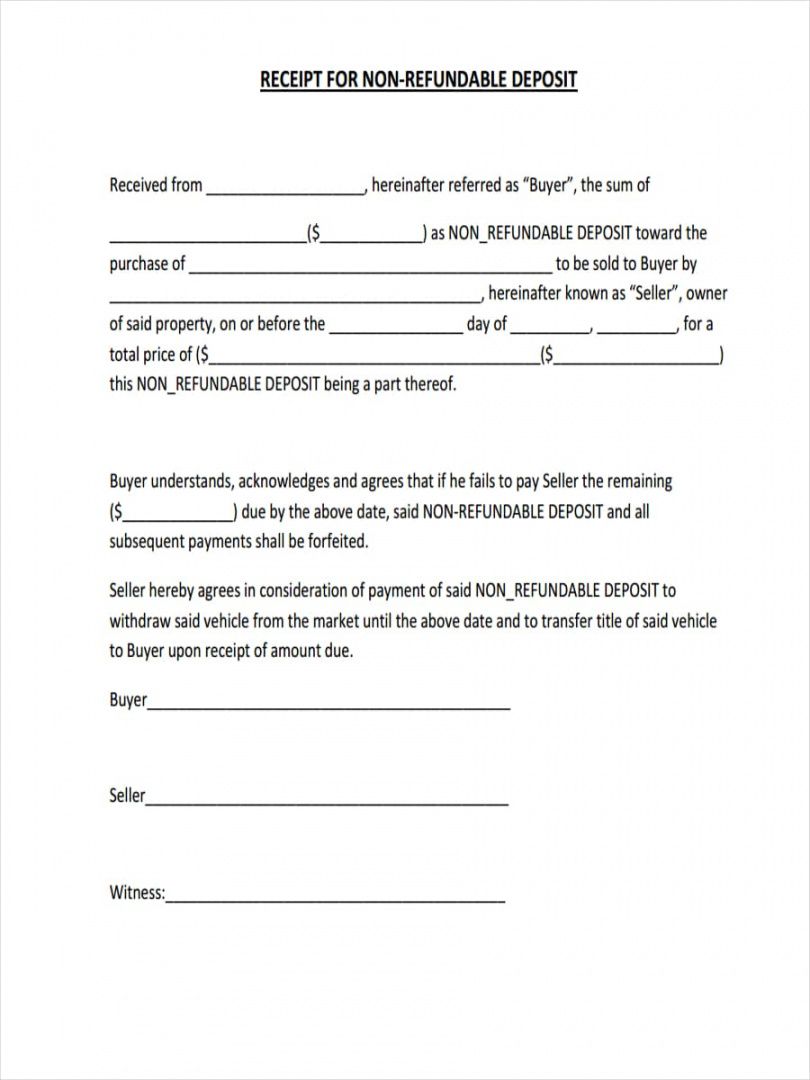
Where the landlord fails to register the bond there are hefty penalties. The landlord can be required to cover the tenant a sum three times more than the deposit; or they may have to pay back all lease plus a penalty or the landlord may eliminate the right to evict the tenant from the property the decision on the fee is accepted by the court. Some landlords say they don’t take deposits they just ask the tenant to pay two weeks rent beforehand. If the tenant pays rent monthly along with the landlord always has a float of one month’s rent this is just like taking a deposit and the rules concerning failure to register a deposit will apply.

